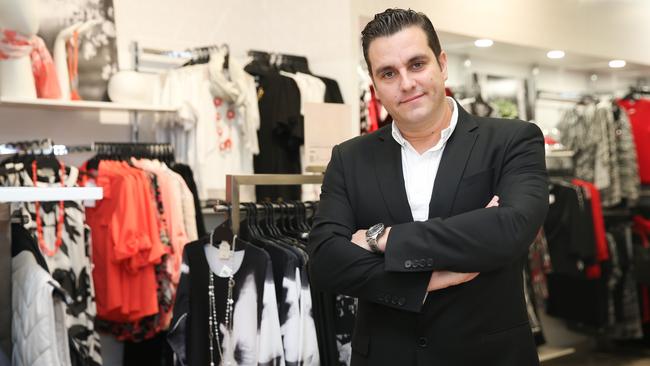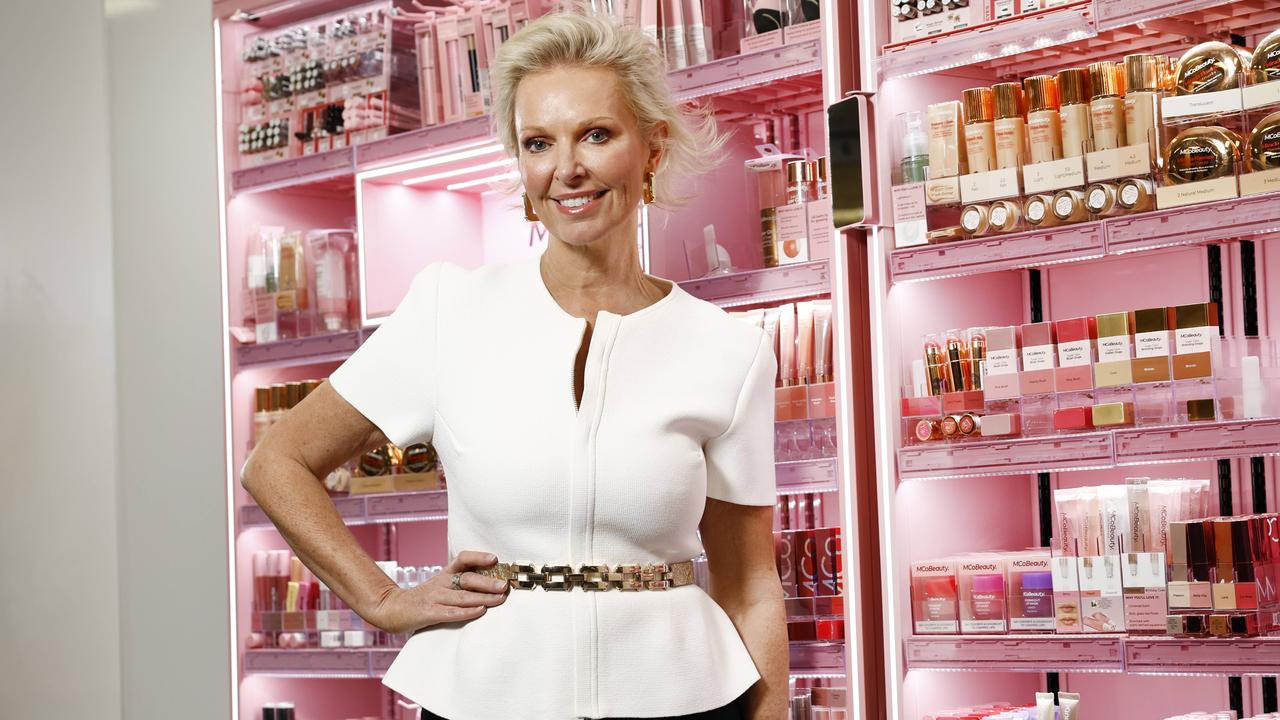Mosaic Brands sees sales lift as Covid-19 vaccine rollout boosts consumer confidence
Mosaic Brands boss Scott Evans says he is witnessing a rise in foot traffic and sales at his fashion and apparel stores as Covid-19 vaccines are rolled out.

Mosaic Brands chief executive Scott Evans says he is witnessing a rise in foot traffic and sales at his fashion and apparel stores as Covid-19 vaccines are rolled out, especially to older people, with the community also rebounding quicker from snap lockdowns caused by pandemic outbreaks.
Delivering a strong trading update and profit upgrade on Wednesday that triggered a 20 per cent leap in Mosaic Brands’ share price, Mr Evans said there was a direct correlation between vaccination rates and consumer confidence.
“Foot traffic is still subdued compared to pre-pandemic levels, but the more coverage of the vaccine as the vaccine starts to gain more ground we certainly have seen from Easter onwards a constant weekly build of traffic inside the stores,” Mr Evans told The Australian.
“Secondly I think as a community we are getting a little more used to opening and closing the borders … and if I go back to July, August and September, when Victoria was closed every time we had a border closure, it would take two or three weeks to see a meaningful bounce back.
“What we are seeing at the moment is it bounces back literally within a week. If I go back last year that would have taken three weeks.
“So I think as a community we are just used to this lack of reliability, but when something happens and a lockdown commences we take it seriously, when it is over we have more confidence and come back out.”
That improving consumer confidence was translating into stronger sales momentum for Mosaic Brands, the fashion and apparel company behind retail stores such as Millers, Noni B, Katies and W. Lane, which said it expected a full-year underlying EBITDA of roughly $48 million (excluding its recent purchase of online retailer EziBuy) subject to no widespread lockdowns.
Mosaic Brands expected underlying EBITDA (excluding EziBuy) to rise to about $50 million in the 2022 fiscal year as customer confidence and shopping patterns continue to rebuild.
“The rollout of the vaccine is helping, yes, definitely,” Mr Evans said.
“Our transactions, our footfall counters and all our intelligence tells us that it is.”
Mr Evans also reiterated his threat to recalcitrant landlords that he was prepared to close as many as 500 of its stores unless they came to the negotiating table to offer more competitive rents, with 212 stores closed to date. He maintained that Mosaic Brands was in an “agile” leasing position given roughly 90 per cent of his leases were due to expire within the next two years.
“Where landlords believe we are in a normal world and we are back to pre-pandemic levels, which we are not clearly because there is a massive stimulus in the economy, we won’t operate stores where landlords have got that position,” he said.
Mosaic Brands said on Wednesday that it had finalised documentation with ANZ to renew its $25 million working capital facility with a step down to $15 million in January next year, removing the material uncertainty commentary published in its half-year results. The retailer has renegotiated the terms of the option over its purchase of EziBuy to extend the exercise period from June 30 to September 30.
Additionally, Mosaic brands has negotiated an extension to payment terms to December 31. As a result, Mosaic now intends to exercise the option on or around September 30, subject to there being no material adverse change, propelling the group’s digital revenue to more than $200 million, or about 30 per cent of total income.
Mosaic Brands shares ended up 10.5c, or 18.3 per cent, at 68c.





